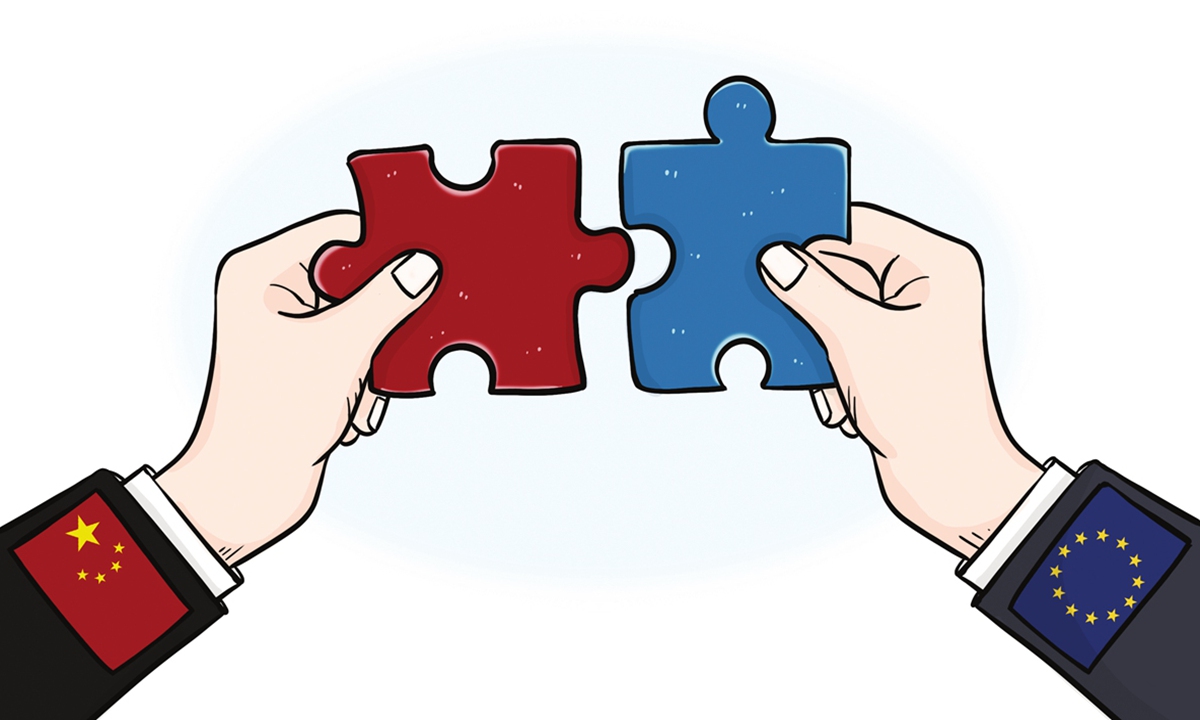
China EU relations
Editor's Note:This year marks the 50th anniversary of the establishment of diplomatic relations between China and the European Union (EU). At present, it seems that Europe's strategy toward China presents a complexity of both cooperation and competition. In the face of profound changes and turmoil, what role Germany, one of the largest countries on the continent, will play in China-EU relations has become the focus of public opinion.
In a recent interview with Global Times (GT) reporter Xia Wenxin, Michael Borchmann (Borchmann), former head of the European and International Affairs Department of the federal German state of Hesse, pointed out that China-Germany economic and trade cooperation has always been a "win-win" model. He urged Europe and Germany to be open to the emerging multilateral mechanisms and jointly safeguard the order of free trade and multilateralism, instead of being confined to "old structures."
GT: As the former head of the European and International Affairs Department of the federal German state of Hesse, you must have accumulated rich experience in China-Germany cooperation. In the face of the current development in the bilateral relationship, how do you think Germany should further promote cooperation with China in various fields while safeguarding its own interests?
Borchmann: The bilateral cooperation between Germany and China has always been a win-win situation, including in the field of economy. And even in recent times, when there were people in our federal government, who tried to interrupt this cooperation with words like "de-coupling" or "de-risking," our important German economic leaders [still] think very practically and were wise enough to continue this mutually fruitful cooperation.
GT: In an interview with a Chinese media outlet in 2018, you said that the US is "retrogressed" from civilized interaction to "gunboat diplomacy" by stirring up trade friction with other countries. Do you believe we are seeing the same type of "retrogression" now? What is the general reaction in Germany to the current tariff threats by the US government?
Borchmann: Every country in this world has to watch and safeguard its national interests. But I have the impression that no other country in this world pursues its national interests so massively as the US does. Some people even describe this as reckless.
Speaking of the reaction to the US tariff threats, of course, the important German automotive industry is afraid of being hurt by the announced tariffs to the tune of billions of euros.
Germany is a member of the EU, so the German reaction to the US' attacks cannot be a national one, but one in connection with the EU. And the bloc already has announced reactions to the new US steel and aluminum tariffs and plans to impose new tariffs on US products.
Concerning the US tariffs on the automotive sector, it seems that the EU has prepared a list of 99 pages with a collection of retaliation tariffs. This contains consumer articles like refrigerators and washing machines, but also agricultural machinery like combine harvesters or tractors. And it could hit the important digital industry, which could be considered a "tax" for US technology enterprises like Google, Meta and Apple.
GT: As you said, Germany is an EU member, and in fact, it is one of the major countries in the bloc. Do you think China and the EU could find a balance between the different aspects of their ties? What role do you expect Germany to play in this regard?
Borchmann: At least the President of the European Commission Ursula von der Leyen has underlined the importance of the relations between the EU and China in general. Of course, it would be helpful if a balance is found. I am not sure what role Germany might play, as there are so many uncertainties about the course of our future government.
GT: In the face of changes in the global governance system and challenges to multilateralism, how do you think China, Germany and Europe should cooperate in the global multilateral framework?
Borchmann: If you look at the world outside Europe, you will find a lot of new developments, such as BRICS. Europe and Germany must be cautious not to remain in old structures. Generally, Europe stands for free trade and open markets, and it should follow these principles. This means meeting other states at eye level and supporting the principle of multilateralism instead of bilateralism and unilateralism.




